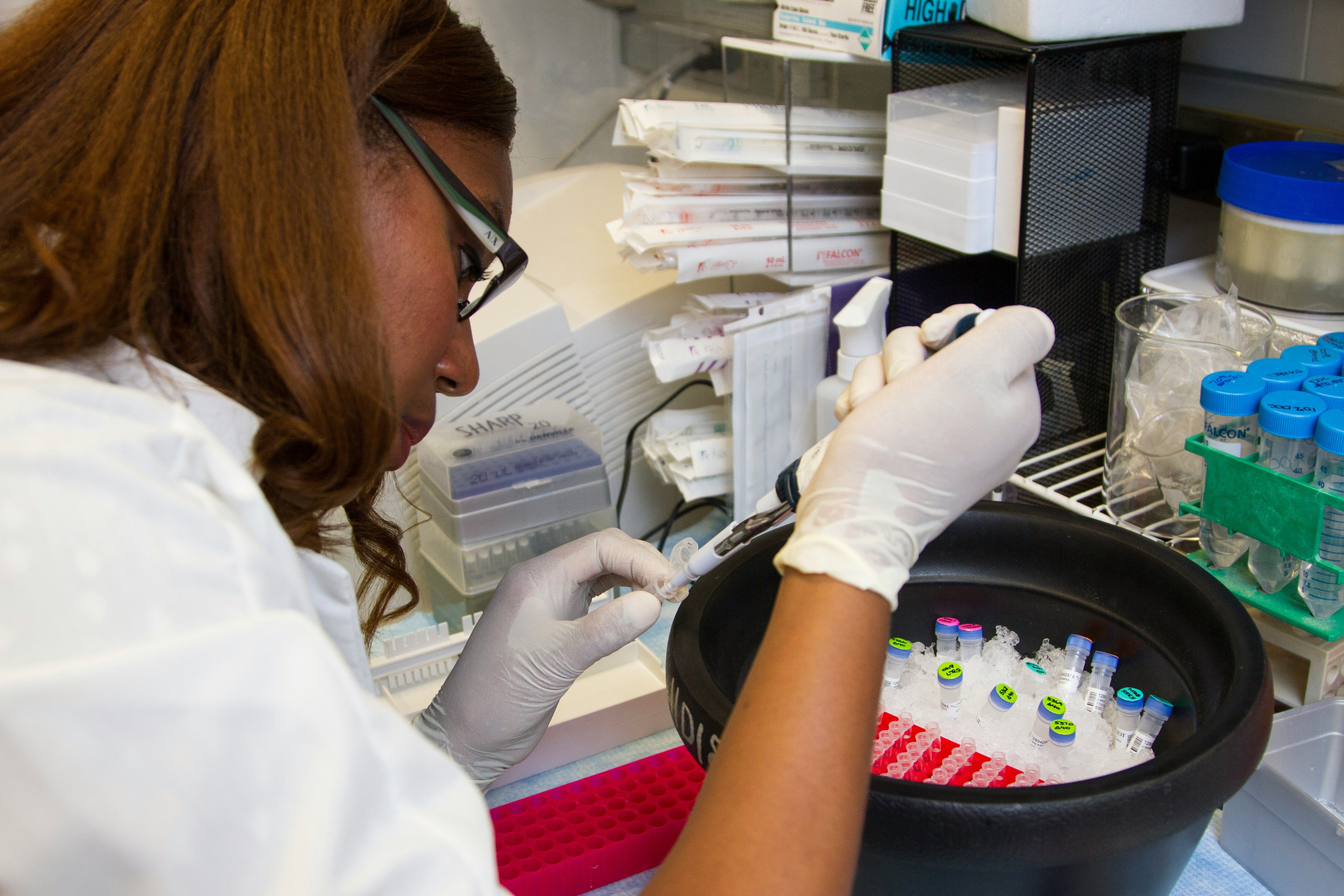
Longevity Lessons from Women in Blue Zones: How Their Lifestyle Can Inspire Healthier Living
Women from Blue Zones—regions of the world known for their high rates of longevity—live longer, healthier lives, often free from chronic disease well ...

As science advances, it’s becoming clear that nutrition is not a one-size-fits-all solution. Enter nutrigenomics, a field of research that explores how our genes interact with the foods we eat, offering insights into personalized nutrition. For women, nutrigenomics provides an opportunity to tailor diets based on their unique genetic profiles, addressing specific hormonal and metabolic needs that change throughout life. Whether it’s navigating reproductive years, managing the metabolic shifts of menopause, or maintaining vitality into older age, nutrigenomics can enhance longevity and optimize well-being.
This article dives into the key ways personalized nutrition can benefit women at different life stages, highlighting the science behind nutrigenomics and its potential to help women live longer, healthier lives.

Nutrigenomics is the study of how genes and nutrients interact. It reveals how certain genetic variations can affect how individuals metabolize fats, carbohydrates, and proteins, and how they absorb essential nutrients. By understanding these genetic factors, women can make more informed dietary choices that are uniquely suited to their bodies.
For example, some women may have genes that make them more sensitive to saturated fats, while others might process carbohydrates differently, affecting weight management and overall health. Nutrigenomic testing helps identify these genetic variations, allowing for tailored dietary advice to reduce the risk of chronic conditions such as heart disease, diabetes, and osteoporosis.
Throughout their lives, women experience different hormonal shifts that influence their nutritional needs, from puberty and pregnancy to menopause and aging. Nutrigenomics can help identify specific dietary strategies to support women at each stage, addressing their unique genetic predispositions and health challenges.
Hormonal Health: Genes influence how women metabolize fats and carbohydrates, which can impact hormone balance. Nutrigenomics can provide insights into how diet can support conditions like PCOS, menopause, and osteoporosis.
Metabolic Changes: As women age, their metabolism slows, and their risk for conditions like diabetes increases. Nutrigenomic testing can highlight how specific genes affect carbohydrate sensitivity and insulin resistance, guiding women toward diets that optimize metabolism and maintain a healthy weight.
Bone Health: Genes like VDR influence calcium and vitamin D absorption, essential for bone health. Nutrigenomics can provide personalized advice to help women maintain bone density as they age, reducing the risk of osteoporosis.
Let’s explore how personalized diets based on nutrigenomics can support women’s health at different life stages:
During these years, women’s bodies undergo regular hormonal shifts, particularly around menstruation and pregnancy. Nutrigenomics can help women optimize their diets to meet their specific needs.

As women enter perimenopause and menopause, they face new challenges such as hormonal imbalances and a slower metabolism. Personalized diets can help manage these changes effectively.
For aging women, preventing chronic diseases like heart disease, diabetes, and cognitive decline becomes a priority. Nutrigenomics offers insights into dietary strategies that support longevity and healthy aging.
Q: What is nutrigenomics, and how does it affect women’s health?
A: Nutrigenomics is the study of how genes interact with the nutrients in your diet. It helps women understand how their genetic makeup influences the way they metabolize certain nutrients, such as fats, carbohydrates, and vitamins. By using nutrigenomic insights, women can tailor their diets to their genetic profile, optimizing health, balancing hormones, and reducing the risk of chronic diseases such as heart disease, diabetes, and osteoporosis.
Q: How can nutrigenomics help with weight management for women?
A: Nutrigenomic testing can reveal how a woman’s genes affect metabolism, carbohydrate sensitivity, and fat processing. This information allows women to create a personalized diet that helps maintain a healthy weight, manage insulin sensitivity, and reduce the risk of weight-related conditions like type 2 diabetes. For example, women with certain genetic variants may benefit from low-glycemic diets or higher-protein plans to manage weight effectively.
Q: Is nutrigenomics helpful at every stage of a woman’s life?
A: Yes, nutrigenomics can be beneficial throughout different life stages. For younger women, it can support reproductive health by optimizing nutrient intake for hormonal balance. During menopause, personalized nutrition can help manage weight gain, bone health, and cholesterol. In later life, it can guide women toward diets that protect cognitive function and reduce inflammation.
Q: What types of genetic variants are commonly tested in nutrigenomics?
A: Common genetic variants tested in nutrigenomics include those related to fat metabolism (such as APOE), carbohydrate sensitivity (such as TCF7L2), and nutrient absorption (such as VDR for vitamin D). These insights help tailor dietary recommendations based on how your body processes different nutrients.
Q: Can I start nutrigenomic testing on my own, or do I need to consult a healthcare provider?
A: While some direct-to-consumer tests are available, it’s always advisable to consult with a healthcare provider or registered dietitian who specializes in nutrigenomics. They can help you interpret the results and create a personalized nutrition plan based on your genetic profile and health goals.
The information provided in this article is for educational purposes only and should not be considered as a substitute for professional medical advice. Always consult with a healthcare provider or registered dietitian before making any significant changes to your diet, starting new supplements, or undergoing nutrigenomic testing. Nutrigenomics is a growing field, and while genetic insights can guide personalized nutrition, individual results may vary based on overall lifestyle, environment, and health conditions.
Nutrigenomics represents a significant leap forward in personalized nutrition, allowing women to tailor their diets based on their genetic profiles for improved health and longevity. By understanding how their genes interact with nutrients, women can optimize their diets to address specific needs at every stage of life—from reproductive health to healthy aging.
Incorporating these insights doesn’t require drastic changes—simple adjustments like adding more omega-3-rich foods, managing carbohydrate intake, and ensuring adequate calcium and vitamin D can make a profound difference. As more women embrace the benefits of nutrigenomics, the potential for improved longevity and well-being becomes even more exciting. Whether you’re in your 20s or 60s, taking control of your genetic blueprint can help you live a longer, healthier life.

Women from Blue Zones—regions of the world known for their high rates of longevity—live longer, healthier lives, often free from chronic disease well ...

As women age, the nutritional needs of their bodies change, and so does the focus on maintaining health through diet. For women over 50, the omnivore ...

In our fast-paced contemporary world, life often feels like an unending sprint against time; thus, the idea of longevity frequently seems elusive--alm...

The connection between what we eat and how we feel is powerful—certain foods provide the nutrients our brain needs to support mood, energy, and overal...

Social gatherings often mean a spread of carb-heavy foods and tempting desserts that can make sticking to the carnivore diet feel tricky. But with a b...